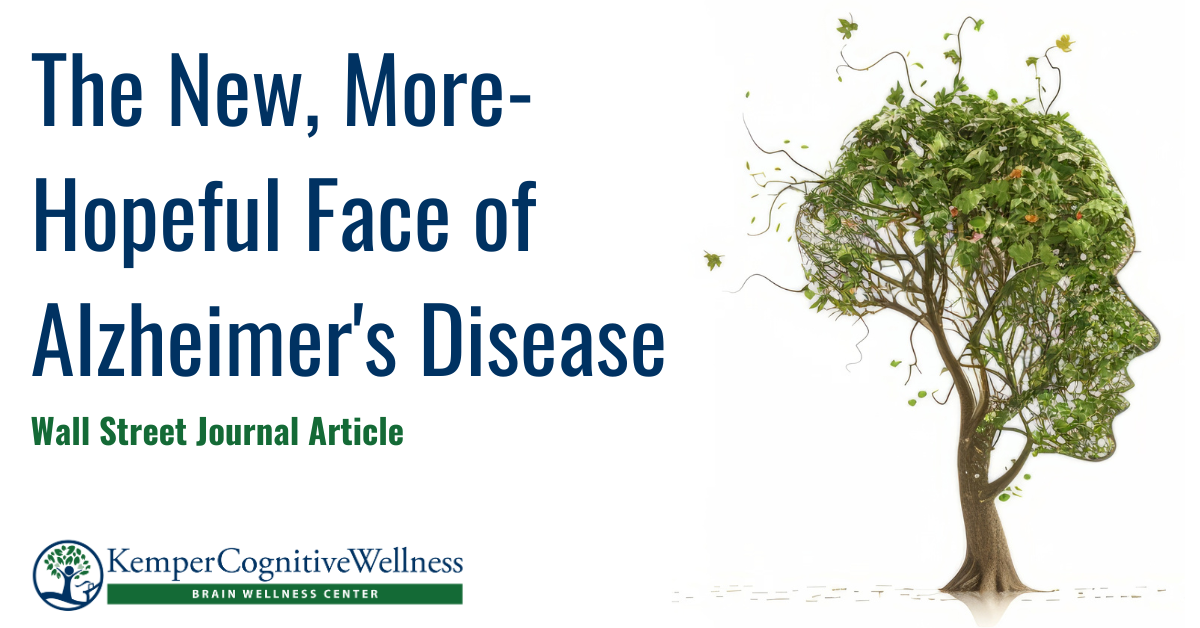In a recent Wall Street Journal article published on April 13, 2024, Dr. Marc E. Agronin, a geriatric psychiatrist and the chief medical officer of the Frank C. and Lynn Scaduto Mind Institute at Miami Jewish Health, discusses how new advances in Alzheimer’s disease are transforming lives. Once seen as a death sentence, Alzheimer’s disease is now viewed differently due to significant advances in early detection and management. In his article, Dr. Agronin, discusses this transformation through his experiences at the memory-disorder clinic he runs. Below is a brief summary of his article. For further details, read the full article by Dr. Agronin in the Wall Street Journal here.
A New Face of Alzheimer’s
Dr. Agronin highlights a patient, a 68-year-old hairstylist, who continues to live an active life two years after being diagnosed with early-stage Alzheimer’s. This patient’s determination exemplifies the “quiet revolution” in Alzheimer’s care, driven by new detection methods and treatments that allow many to maintain a relatively normal life for extended periods.
Lifestyle Interventions
Modern Alzheimer’s work-ups often begin before noticeable symptoms, focusing on preventing or mitigating mild cognitive changes through lifestyle modifications. Patients are encouraged to stop smoking, moderate alcohol consumption, eat healthily, exercise, manage depression, and keep their brains active. Addressing factors like hearing loss, sleep apnea, and chronic exposure to pollutants can also reduce the risk or delay the onset of the disease.
Early Detection and Biomarkers
The ability to detect Alzheimer’s early through biomarkers like beta-amyloid and tau proteins in the brain allows for a more definitive diagnosis. Early detection enables patients to make lifestyle changes and start treatments sooner, significantly impacting their disease progression.
Drug Breakthroughs
Dr. Agronin mentions the new immunotherapy drug lecanemab (Leqembi) and its potential to slow cognitive decline in early-stage Alzheimer’s patients. Despite potential side effects, these treatments offer hope for a better quality of life and a slower disease progression. More treatments and clinical trials are in development, providing additional options for patients.
Changing the Conversation
The advances in Alzheimer’s detection and treatment have also changed how doctors communicate with patients. Dr. Agronin now uses more positive language, emphasizing “living with neurocognitive changes” rather than “suffering from a disease.” This shift encourages patients to focus on their strengths and continue engaging in meaningful activities.
Strategies for Success
Dr. Agronin outlines key strategies for managing Alzheimer’s:
- Prevention: Address risk factors like high blood pressure, diabetes, and obesity early.
- Cognitive Vital Signs: Monitor memory and cognitive skills regularly.
- Expert Consultation: Seek comprehensive evaluations at the first sign of cognitive changes.
- Active Coping: Maintain an active lifestyle with adjustments as needed.
- Address Contributing Factors: Treat anxiety, depression, and other issues that can worsen cognitive decline.
- Positive Attitude: Foster a sense of confidence and purpose.
Dr. Agronin emphasizes that Alzheimer’s management is no longer about mere survival but about thriving despite the diagnosis. Advances in science and medicine offer a hopeful outlook for those living with neurocognitive disorders.
For further details, read the full article by Dr. Marc E. Agronin in the Wall Street Journal here.





